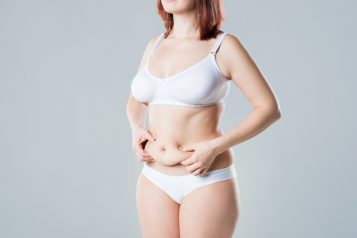Elizabeth Laikhter BA contributed to this article.
Dr. Samuel Lin is a double board-certified Plastic Surgeon and Associate Professor of Surgery at Harvard Medical School who practices in Boston, Massachusetts. Dr. Lin is an active Board Member of the Susan G. Komen for the Cure and Bright Pink Foundations. Dr. Lin is active in both basic science and clinical research with a focus on face/neck/nose surgery (rhinoplasty), breast surgery (reduction, lift, and reconstruction), and body contouring. He collaborates with engineers, scientists, and other plastic surgeons at other institutions within the New England area, nationally, and internationally. He is the editor of several medical textbooks including Aesthetic Atlas of the Head and Neck, Atlas of Body Contouring, and Plastic and Reconstructive Surgery Pearls of Wisdom and Pearls of Wisdom Second and Third Editions. Haute Beauty Expert Dr. Samuel Lin shares balanced and healthy diet recommendations for patients after their plastic surgery procedures.
 Photo Credit: ShutterstockWhile it is always important to maintain proper nutrition and eat a well-balanced diet, eating healthy may become even more important prior to and immediately after a plastic surgery procedure. Although plastic surgery is typically lower risk than other surgeries, there are several things that patients can do to maximize their results and healing after the plastic surgeon’s work is over. Diet and nutrition are the part of post-operative care that you can truly take into your own hands. In this article, we will recommend foods containing nutrients that are proven to enhance postoperative recovery.
Photo Credit: ShutterstockWhile it is always important to maintain proper nutrition and eat a well-balanced diet, eating healthy may become even more important prior to and immediately after a plastic surgery procedure. Although plastic surgery is typically lower risk than other surgeries, there are several things that patients can do to maximize their results and healing after the plastic surgeon’s work is over. Diet and nutrition are the part of post-operative care that you can truly take into your own hands. In this article, we will recommend foods containing nutrients that are proven to enhance postoperative recovery.
Protein: One of the most important molecules for wound healing and repair is Collagen. Collagen is a protein molecule that is a major component of human connective tissue. If you are having surgery, it is important to eat foods that provide adequate protein to ensure enough collagen can be synthesized by the body for wound repair. Foods that are good sources of lean protein include poultry, fish, eggs, nuts, beans, and other legumes.
Carbohydrates: Although carbohydrates sometimes get a bad reputation, eating the right carbohydrates provides your body with additional nutrients that promote wound healing. Carbohydrates are used by the body to build the backbone of amino acids and protein, which we already established are critical for wound healing. Importantly, if you have had fat grafting procedures, there is evidence that carbohydrates are the best nutrient for increasing fat retention in the area of fat grafting. This is likely because fat cells are sensitive to insulin. As carbohydrates are digested into sugars, insulin levels increase and promote fat grafts survival. The best carbohydrates to eat are complex carbohydrates and whole grains. This includes fruit, vegetables, whole grain bread, brown rice, potatoes, corn, barley, and whole-grain pasta.
Fiber: Due to the effects of anesthetics used during surgery, the digestive system often slows down, and can make you feel constipated postoperatively. It is important to keep eating foods with fiber to keep your digestive system active and moving. Luckily fiber is abundant in complex carbohydrate-rich foods including fruit, vegetables, and whole grains.
 Photo Credit: ShutterstockProbiotics: Probiotics are another way to maintain a healthy digestive system. In addition to the effects of anesthetics, the antibiotics administered during surgery for the prevention of infection can kill the good bacteria in your gut that keep your digestive system healthy. Foods with probiotics such as yogurt can maintain a healthy gut microbiome to counteract the effect of antibiotics and anesthetics.
Photo Credit: ShutterstockProbiotics: Probiotics are another way to maintain a healthy digestive system. In addition to the effects of anesthetics, the antibiotics administered during surgery for the prevention of infection can kill the good bacteria in your gut that keep your digestive system healthy. Foods with probiotics such as yogurt can maintain a healthy gut microbiome to counteract the effect of antibiotics and anesthetics.
Vitamin A: Vitamin A goes beyond maintaining your vision. It stimulates skin cell growth, blood vessel growth, collagen synthesis, and granulation tissue formation. It has many benefits for wound healing and can be found in carrots, sweet potatoes, mango, and dark leafy greens.
Vitamin C: As mentioned previously, collagen is one of the most important molecules for wound healing. However, it would be nothing without the action of vitamin C. Vitamin C is essential for cross-linking collagen to form strong bonds between the molecules. Since vitamin C is a water-soluble molecule and cannot be stored in the body, it is important to consume vitamin C-rich foods every single day before and after surgery. Foods with high vitamin C content include kiwi, citrus, peppers, berries, broccoli, and brussel sprouts.
Zinc: Zinc works together with vitamin C to cross-link collagen. Zinc promotes uniform and strong wound healing, therefore it is important to ensure you have enough zinc in your diet after surgery. Zinc is found in red meat, eggs, legumes, seeds, nuts, shellfish, and dark chocolate.
While it is important to eat these foods around the time of surgery, it is encouraged that you eat a variety of these foods daily. Proper nutrition enhances your health and promotes faster healing. Patients who incorporate these foods and nutrients into their diets daily tend to have the best post-surgical wound healing outcomes.
For more information, visit Dr. Brian A. Levine's social media:

























